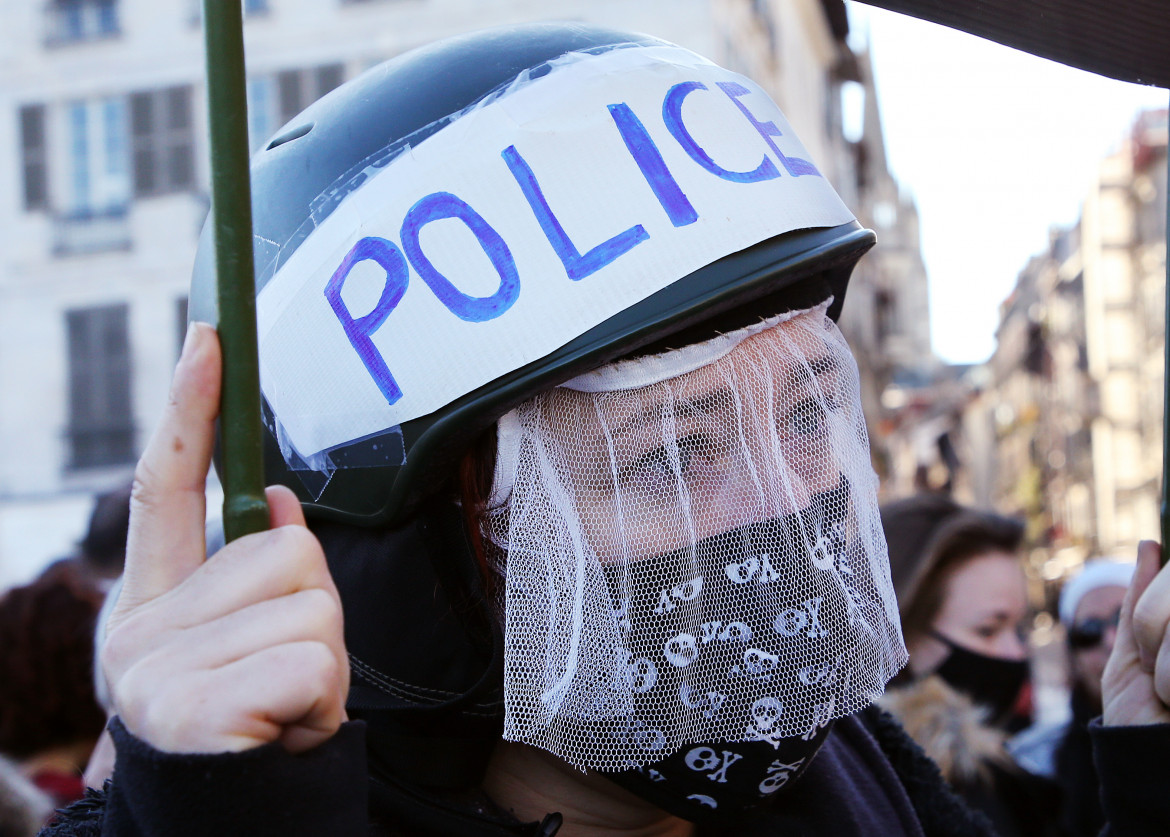Report
France will vote today on its Orwellian police ‘wellbeing’ law
Protests sprang up across the country against the new law that will be voted on next Tuesday. In particular, Article 24 promises up to a year in prison and a €45,000 fine for those who spread unflattering images of police.

There was a large “stationary” protest at the Trocadero in the capital, plus sit-ins in about 20 other French cities, to protest against the Orwellian-titled “Global Security” law, which will be up for a final vote on Tuesday, Nov. 24. The protests are focused in particular against one article, Art. 24, which punishes with up to one year in prison and a €45,000 fine anyone who disseminates images of policemen or gendarmes “with the manifest purpose of damaging their physical or psychological well-being.”
The adjective “manifest,” together with the clarification that the sanctions must be “without prejudice to the right to information,” was added at the last moment, before the first reading of the article for the vote in the Assemblée Nationale on Friday evening (146 votes in favor, 24 against) in the hope of mitigating the criticisms, which came from many places including the UN Commission on Human Rights.
Other articles are also causing concern: Article 20, which increases video surveillance, Article 21, which legalizes the use of drones to maintain public order, and Article 22, which increases the number of video cameras in public spaces. Even among the majority of République en Marche (REM) and MoDem, disagreements were expressed about Article 24 (at the vote on Friday, there were 5 REM abstentions), which seems unnecessary, since the law already protects against the dissemination of personal data with incitement to violence.
The demonstrations were organized by the Journalists’ Union and the Human Rights League to warn about the limitation of the right to information. The new law was pushed by the Minister of Interior, Gérald Darmanin, a former Sarkozy loyalist who, after making a series of ambiguous statements, was then forced to walk them back in order to try to put out the fire: Darmanin even went so far as to call on journalists to “get closer to the authorities,” i.e. get accreditations in order to follow the demonstrations and avoid being detained if they record scenes of violence by the police forces, which have exploded in France with the protests of the yellow vests. Later, he backtracked, stating that the law aimed merely to regulate the uncontrolled dissemination on the web of images and identifying information (name, address) of police officers.
Darmanin is arguing that the law does not prevent journalists from doing their job, but even before it was voted, on Tuesday, during the first protest demonstration near Palais Bourbon (the headquarters of the Assemblée Nationale), two journalists were detained during the scuffles.
It was the police unions, more right-wing, which demanded new regulations, more protective for the police.
The images captured—not only by journalists, but also by activists or ordinary citizens—have served in recent years to unmask police violence: the most sensational case is that of Alexandre Benalla, Macron’s bodyguard, who was filmed while disguised as a policeman and attacking demonstrators at Place de la Contrescarpe. On Saturday, the partner of Cédric Chouviat, who was killed by police on Jan. 5 during a routine stop, recalled before the protesters at Trocadero that images serve to reveal the truth.
Originally published at https://ilmanifesto.it/sicurezza-globale-una-legge-orwelliana/ on 2020-11-22
